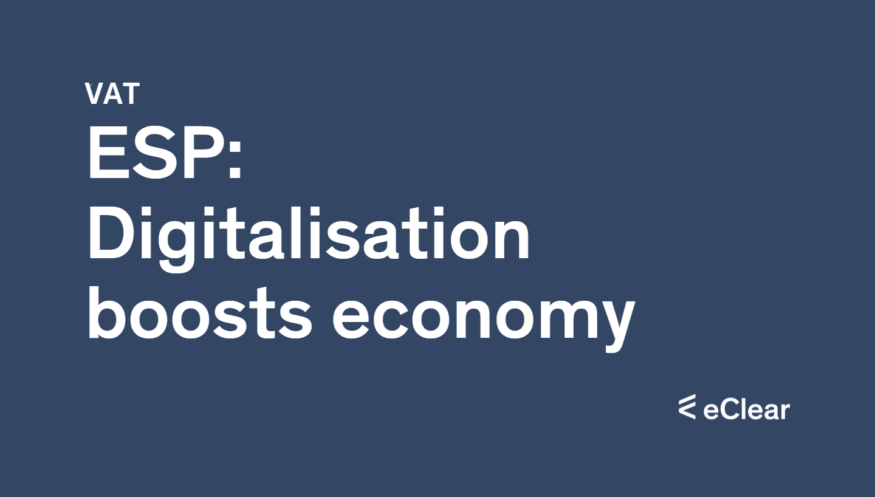Spain’s legislature has passed a new law to encourage business creation and development. However, it is not just a tax law but a law that aims to strengthen Spanish companies and individual sectors.
What do the measures pay for?
- Accelerate business start-ups
- Simplification of regulations, mainly concerning business development and activities
- Better promotion and financing possibilities
One of the measures adopted with this new law is the mandatory use of e-invoicing. This is an essential step for Spain, especially since the previous e-invoicing was voluntary – except in exceptional cases in the B2G sector.
The new law stipulates that companies and freelancers in the B2B sector switch to electronic invoices in their business relations. This means that e-invoices must henceforth be issued, sent, and received.
Further guidance expected
The exact implementation of these measures is still uncertain, and the publication of the corresponding implementing regulation is awaiting. This document, expected to be released soon, will provide crucial guidance for businesses navigating the new invoicing procedure.
This regulation is also significant because it starts the period for the e-invoicing obligation to come into force. For companies such as freelancers whose annual turnover breaks the EUR 8 million mark, this regulation will apply one year after the announcement of the law. It comes into force 24 months after publication for all other companies and freelancers.
The regulation is eagerly anticipated due to the ongoing debate in Spain about the definition of an e-invoice. Whether a PDF document can be considered an e-invoice is contentious, sparking lively discussions in the media and among industry professionals.
Only a few years ago, Spain abolished the mandatory rule that required invoices to be in a specific format to be considered electronic.
Impact on technology companies
Regarding e-invoicing at technology companies such as platform operators, the law stipulates that they must ensure system-independent compatibility: Users should be able to read, copy, download, or print their e-invoices at any time without problems. They must also be able to connect to the systems of the Spanish tax authorities. They are also required to ensure that the integrity, storage, accessibility, legibility, traceability, and immutability of invoice records are guaranteed.
Companies that offer invoicing services expect additional effort to comply with and adapt to these new regulations.
In short, it is conceivable to oblige companies to issue e-invoices without invoice-issuing software during the new regulation. The authenticity of the document must be guaranteed.
Considerations of the EU
What this implementation order will look like remains to be seen. In Spain, the trade eagerly awaited this. Another question is how the e-invoice fits into the European Commission’s proposal on VAT in the digital age. For companies, it is crucial to what extent the regional regulations favour a division of the markets, if any. Therefore, harmonisation or consensus at the EU level will inevitably be essential.







